How to Grow a Digital Marketing Agency: Strategies for 2024
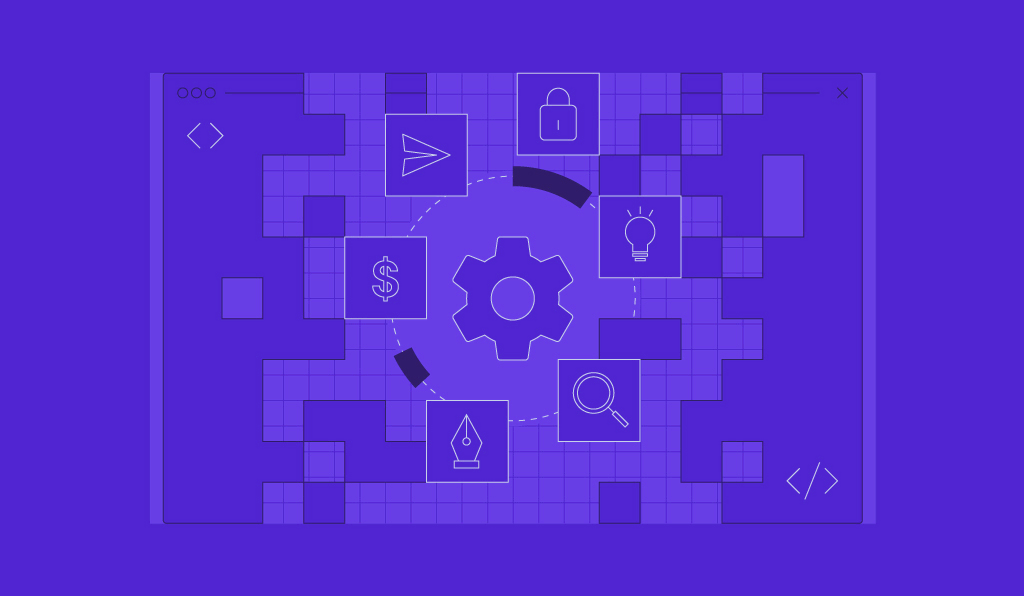
The digital marketing industry is evolving rapidly, so agencies must adapt and grow to stay competitive. They must be proactive, innovative, and customer-centric to survive and thrive in this dynamic environment.
Growing a digital marketing agency can be challenging. Fortunately, our experts have created this guide with impactful strategies to help you scale a digital marketing agency effectively.
How to Grow a Digital Marketing Agency
Let’s delve into tried-and-tested best practices to grow your digital marketing agency and achieve consistent results.
Strategies for Digital Marketing Agency
1. Create a Solid Foundation for Easy Growth
It’s important to lay down a robust foundation for boosting digital agency success. Make sure to follow these best practices:
- Define your niche – focus on a specific industry and its target audience. This helps you provide effective, specialized solutions. For instance, the Ireland-based digital agency Reward caters to sustainable eCommerce brands.
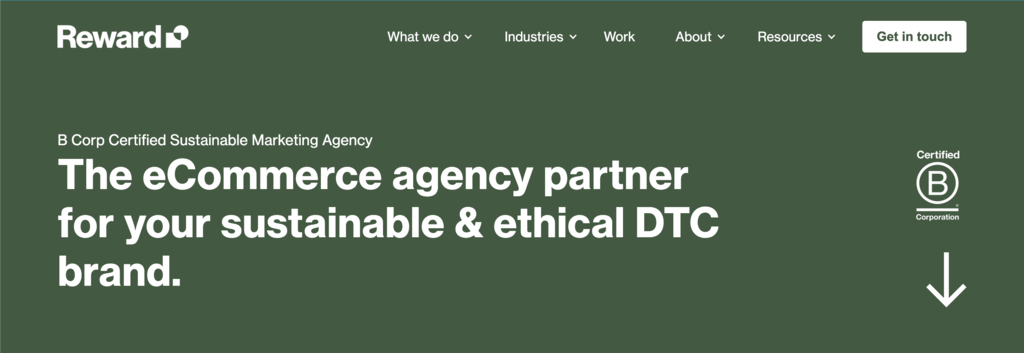
- Develop a unique selling proposition (USP) – identify what sets you apart from competitors. Whether it’s a unique methodology, talent pool, or expertise in leading agency tools, your UVP can attract potential customers.
- Build a skilled team – hire and develop the best talent to tackle various challenges and client demands.
- Adopt proactive learning – employee training is a continuous process. Successful agencies keep up with the latest trends by fostering a culture of proactive learning.
- Cultivate a client-centric mindset – understand client needs, value their feedback, and aim to exceed their expectations. A genuine commitment to customer satisfaction helps you get more clients and retain existing ones.
- Streamline internal processes – use project management software and collaboration tools to execute tasks efficiently. A streamlined back end leads to minimized costs, faster turnaround, and better client satisfaction.
Use Effective Digital Marketing Techniques to Promote Yourself
To establish credibility, apply your skills to build an online presence that showcases the real-world results of your work. Become your own best case study by implementing the very digital marketing services you offer to your clients.
Follow these steps to promote yourself:
- Audit your own website – your agency’s website should be user-friendly, mobile-responsive, and optimized for search engines. Highlight your portfolio, client testimonials, and case studies prominently.
- Leverage social media marketing – maintain an active social media presence. Engage with your audience regularly by sharing insights and case studies.
- Invest in paid advertising – use pay-per-click (PPC) campaigns to target specific audiences and highlight your USPs.
- Host webinars or live sessions – publicly discuss the latest trends in digital marketing. This helps position the digital agency as a thought leader in the field.
- Engage in email marketing – send out regular newsletters with valuable content, such as industry insights, agency updates, and educational eBooks to your subscribers.
- Participate in forums and online communities – engaging in Quora, Reddit, and LinkedIn groups helps provide valuable insights and establish your agency’s authority.
- Improve local search engine optimization (SEO) – ensure your agency ranks well in local searches. Update your Google My Business listing, gather positive reviews, and optimize content for local keywords.
Invest in Content Marketing
Content marketing lets digital marketing agencies demonstrate their industry expertise and promote their services. By consistently publishing insightful and relevant content, agencies can highlight their knowledge, keep audiences informed, and attract new clients.
Here are some digital marketing best practices for your content:
- Identify your target audience – tailor your content to address your target audience’s needs, challenges, and interests.
- Maintain consistency – regularly publish content to build trust and establish authority. Set a content calendar and stick to it.
- Improve SEO – optimize the content for better visibility on search engines. This includes conducting keyword research, SEO audit, meta description optimization, and relevant tagging.
- Engage through various formats – don’t limit yourself to just blog posts. Reach a wider audience by expanding to video marketing, infographics, podcasts, webinars, and virtual events.
- Promote your content – market your services in social media groups, third-party platforms, email newsletters, and paid advertising. A leading SEO firm, Delante, uses social media to engage its followers:
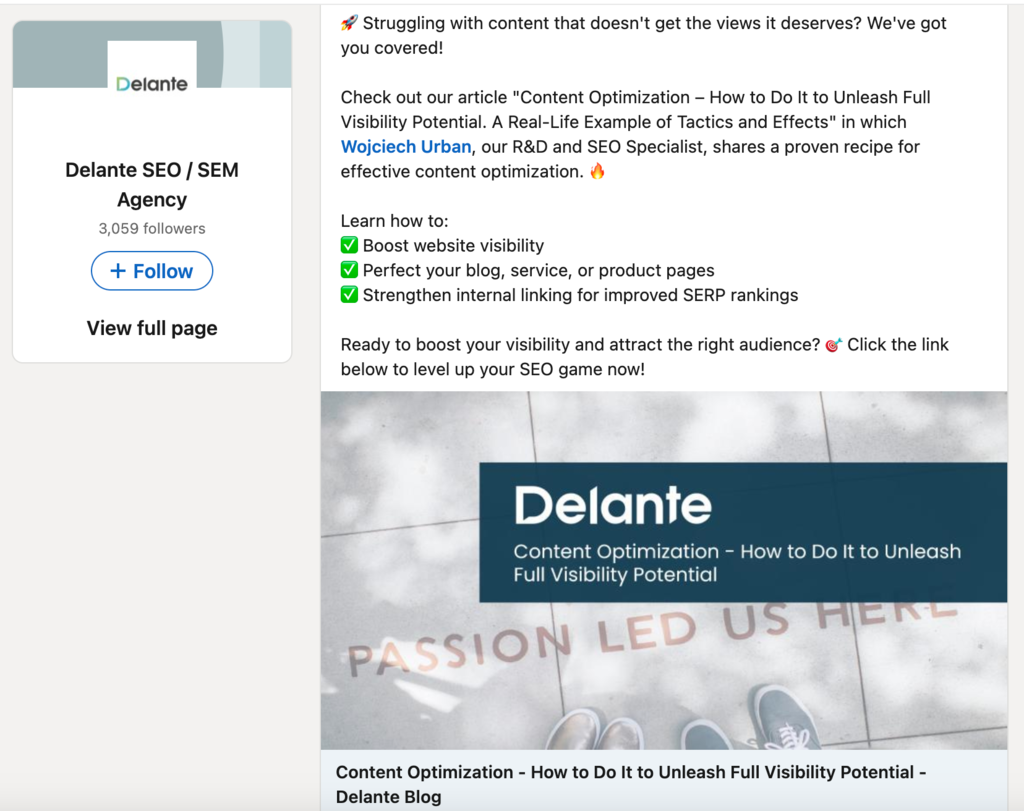
- Use an effective lead magnet – create comprehensive eBooks and actionable checklists to attract prospects and encourage them to share their contact information.
- Engage with your audience – respond to comments, engage with readers on social platforms, and encourage discussions around your content topics.
- Monitor and analyze – use tools like Google Analytics to track your content performance. Understand which pieces are driving traffic, and refine your strategy accordingly.
Use Various Social Media Platforms
Social media marketing is necessary for any digital agency that wants better reach and engagement. Each social platform, be it Facebook, Instagram, LinkedIn, Twitter, or Pinterest, offers unique opportunities to connect with different demographics.
Digital agencies that have a successful social media presence can achieve:
- Diverse audiences – different social media platforms cater to different demographics. Utilizing a mix of these platforms allows your agency to engage with a broader and more varied audience.
- Cost-effective branding – regular posts and updates can help build your brand without costly investments.
- Market testimonials – social media posts are ideal spaces for sharing case studies, client testimonials, and success stories.
- Direct communication – lets followers, clients, and potential leads easily contact your digital agency. Responding promptly to comments, messages, and mentions can enhance the agency’s reputation for client-centric service.
- Trend monitoring – stay up-to-date with the latest trends, discussions, and customer sentiments to be at the forefront of innovation.
Utilize Email Marketing for Client Retention
Leading digital marketing agencies use email marketing to nurture leads and retain clients. Despite the growing popularity of social media, it’s still a highly effective way to reach more clients.
To kickstart your email marketing journey, select a reputable email marketing platform tailored to your needs. Next, define your target audience and segment them based on their interests and behaviors.
Develop high-quality, engaging, and personalized content. Then, consistently monitor, analyze, and make adjustments to your content based on open rates, click-through rates, and feedback.
Remember that the goal of email marketing is to drive traffic to your website and acquire clients by delivering value.
A well-planned email campaign can also help you:
- Nurture leads – send regular updates, promotions, and new content notifications. Although not every potential client will immediately engage, email campaigns help digital agencies keep leads warm while gently guiding them through the sales process.
- Maintain client relationships – maintain and strengthen your rapport with clients beyond just sales, regular email check-ins, newsletters, or insights.
- Increase sales and conversions – encourage recipients to take specific actions, like signing up for virtual events, buying a service, or renewing a contract through targeted offers, announcements, or reminders.
- Segment and personalize – the experience you offer through personalized and relevant content for different groups, increasing engagement rates.
- Gather feedback – to help refine your services and understand client needs better.
Prioritize Client Satisfaction and Retention
Client satisfaction is a benchmark for past success and a predictor of future growth. A satisfied client is more likely to return, refer others, and provide positive feedback. This helps a digital marketing agency build a healthy client pool.
Here are some proven strategies you can implement to improve client satisfaction and retention:
- Provide quality service – ensure that campaigns are planned and executed to the highest standard. You should always deliver your promised outcomes.
- Establish client feedback loops – transparent communication is key. Do regular check-ins, updates, and feedback sessions to understand the client’s perspective. They offer insights into their level of satisfaction and pointers for improvement.
- Educate your clients – empower your clients with knowledge. Host workshops or webinars to help them understand the intricacies of digital marketing. When clients know the value and effort behind the strategies, they’re more likely to appreciate your services and stay loyal to your marketing agency.
- Add more value – go beyond the contract. Offer extra value such as additional reporting, complimentary services, or discounts on prolonged contracts. These efforts make clients feel more valued.
- Resolve conflicts – address concerns or issues promptly to demonstrate your agency’s commitment to client satisfaction.
-
How to Grow a Digital Marketing Agency: Strategies for 2024

The digital marketing industry is evolving rapidly, so agencies must adapt and grow to stay competitive. They must be proactive, innovative, and customer-centric to survive and thrive in this dynamic environment.
Growing a digital marketing agency can be challenging. Fortunately, our experts have created this guide with impactful strategies to help you scale a digital marketing agency effectively.

How to Grow a Digital Marketing Agency
Let’s delve into tried-and-tested best practices to grow your digital marketing agency and achieve consistent results.
Create a Solid Foundation for Easy Growth
It’s important to lay down a robust foundation for boosting digital agency success. Make sure to follow these best practices:
- Define your niche – focus on a specific industry and its target audience. This helps you provide effective, specialized solutions. For instance, the Ireland-based digital agency Reward caters to sustainable eCommerce brands.

- Develop a unique selling proposition (USP) – identify what sets you apart from competitors. Whether it’s a unique methodology, talent pool, or expertise in leading agency tools, your UVP can attract potential customers.
- Build a skilled team – hire and develop the best talent to tackle various challenges and client demands.
- Adopt proactive learning – employee training is a continuous process. Successful agencies keep up with the latest trends by fostering a culture of proactive learning.
- Cultivate a client-centric mindset – understand client needs, value their feedback, and aim to exceed their expectations. A genuine commitment to customer satisfaction helps you get more clients and retain existing ones.
- Streamline internal processes – use project management software and collaboration tools to execute tasks efficiently. A streamlined back end leads to minimized costs, faster turnaround, and better client satisfaction.
Use Effective Digital Marketing Techniques to Promote Yourself
To establish credibility, apply your skills to build an online presence that showcases the real-world results of your work. Become your own best case study by implementing the very digital marketing services you offer to your clients.
Follow these steps to promote yourself:
- Audit your own website – your agency’s website should be user-friendly, mobile-responsive, and optimized for search engines. Highlight your portfolio, client testimonials, and case studies prominently.
- Leverage social media marketing – maintain an active social media presence. Engage with your audience regularly by sharing insights and case studies.
- Invest in paid advertising – use pay-per-click (PPC) campaigns to target specific audiences and highlight your USPs.
- Host webinars or live sessions – publicly discuss the latest trends in digital marketing. This helps position the digital agency as a thought leader in the field.
- Engage in email marketing – send out regular newsletters with valuable content, such as industry insights, agency updates, and educational eBooks to your subscribers.
- Participate in forums and online communities – engaging in Quora, Reddit, and LinkedIn groups helps provide valuable insights and establish your agency’s authority.
- Improve local search engine optimization (SEO) – ensure your agency ranks well in local searches. Update your Google My Business listing, gather positive reviews, and optimize content for local keywords.
Invest in Content Marketing
Content marketing lets digital marketing agencies demonstrate their industry expertise and promote their services. By consistently publishing insightful and relevant content, agencies can highlight their knowledge, keep audiences informed, and attract new clients.
Here are some digital marketing best practices for your content:
- Identify your target audience – tailor your content to address your target audience’s needs, challenges, and interests.
- Maintain consistency – regularly publish content to build trust and establish authority. Set a content calendar and stick to it.
- Improve SEO – optimize the content for better visibility on search engines. This includes conducting keyword research, SEO audit, meta description optimization, and relevant tagging.
- Engage through various formats – don’t limit yourself to just blog posts. Reach a wider audience by expanding to video marketing, infographics, podcasts, webinars, and virtual events.
- Promote your content – market your services in social media groups, third-party platforms, email newsletters, and paid advertising. A leading SEO firm, Delante, uses social media to engage its followers:

- Use an effective lead magnet – create comprehensive eBooks and actionable checklists to attract prospects and encourage them to share their contact information.
- Engage with your audience – respond to comments, engage with readers on social platforms, and encourage discussions around your content topics.
- Monitor and analyze – use tools like Google Analytics to track your content performance. Understand which pieces are driving traffic, and refine your strategy accordingly.
Use Various Social Media Platforms
Social media marketing is necessary for any digital agency that wants better reach and engagement. Each social platform, be it Facebook, Instagram, LinkedIn, Twitter, or Pinterest, offers unique opportunities to connect with different demographics.
Digital agencies that have a successful social media presence can achieve:
- Diverse audiences – different social media platforms cater to different demographics. Utilizing a mix of these platforms allows your agency to engage with a broader and more varied audience.
- Cost-effective branding – regular posts and updates can help build your brand without costly investments.
- Market testimonials – social media posts are ideal spaces for sharing case studies, client testimonials, and success stories.
- Direct communication – lets followers, clients, and potential leads easily contact your digital agency. Responding promptly to comments, messages, and mentions can enhance the agency’s reputation for client-centric service.
- Trend monitoring – stay up-to-date with the latest trends, discussions, and customer sentiments to be at the forefront of innovation.
Utilize Email Marketing for Client Retention
Leading digital marketing agencies use email marketing to nurture leads and retain clients. Despite the growing popularity of social media, it’s still a highly effective way to reach more clients.
To kickstart your email marketing journey, select a reputable email marketing platform tailored to your needs. Next, define your target audience and segment them based on their interests and behaviors.
Develop high-quality, engaging, and personalized content. Then, consistently monitor, analyze, and make adjustments to your content based on open rates, click-through rates, and feedback.
Remember that the goal of email marketing is to drive traffic to your website and acquire clients by delivering value.
A well-planned email campaign can also help you:
- Nurture leads – send regular updates, promotions, and new content notifications. Although not every potential client will immediately engage, email campaigns help digital agencies keep leads warm while gently guiding them through the sales process.
- Maintain client relationships – maintain and strengthen your rapport with clients beyond just sales, regular email check-ins, newsletters, or insights.
- Increase sales and conversions – encourage recipients to take specific actions, like signing up for virtual events, buying a service, or renewing a contract through targeted offers, announcements, or reminders.
- Segment and personalize – the experience you offer through personalized and relevant content for different groups, increasing engagement rates.
- Gather feedback – to help refine your services and understand client needs better.
Prioritize Client Satisfaction and Retention
Client satisfaction is a benchmark for past success and a predictor of future growth. A satisfied client is more likely to return, refer others, and provide positive feedback. This helps a digital marketing agency build a healthy client pool.
Here are some proven strategies you can implement to improve client satisfaction and retention:
- Provide quality service – ensure that campaigns are planned and executed to the highest standard. You should always deliver your promised outcomes.
- Establish client feedback loops – transparent communication is key. Do regular check-ins, updates, and feedback sessions to understand the client’s perspective. They offer insights into their level of satisfaction and pointers for improvement.
- Educate your clients – empower your clients with knowledge. Host workshops or webinars to help them understand the intricacies of digital marketing. When clients know the value and effort behind the strategies, they’re more likely to appreciate your services and stay loyal to your marketing agency.
- Add more value – go beyond the contract. Offer extra value such as additional reporting, complimentary services, or discounts on prolonged contracts. These efforts make clients feel more valued.
- Resolve conflicts – address concerns or issues promptly to demonstrate your agency’s commitment to client satisfaction.
Set Clear and Achievable Goals
Clear and achievable goals are fundamental to the success of each client’s digital marketing campaign. These goals provide direction, focus, and a framework for measurable results.
On a day-to-day basis, clear goals prevent wasteful efforts, leading to a highly efficient workflow. You will be able to deliver high-quality results in a timely manner.
Moreover, high-quality results improve client retention and encourage word-of-mouth referrals. In other words, clear and achievable goals bring positive results for the clients and your agency.
Monitor and Analyze Performance Metrics
Consistent monitoring and thorough performance analysis are essential. It helps you to identify successful strategies, pinpoint areas that need improvement, and allocate resources to maximize results.
Here’s how to systematically monitor and analyze performance metrics as a digital marketing agency:
Utilize Analytics Tools
The first and most important step is to utilize analytics tools like Google Analytics, Semrush, or HubSpot. The in-depth insights these tools provide allow you to discern what strategies are working and what needs to be revised.
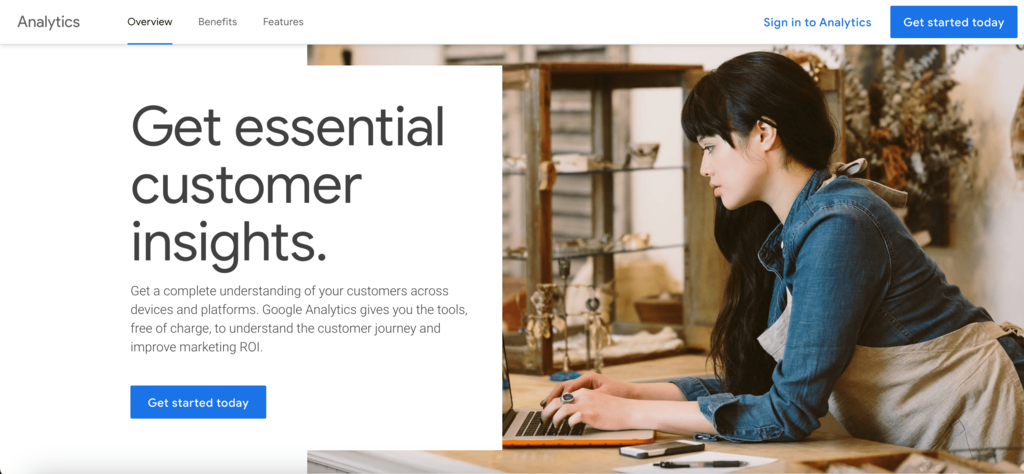
Track Critical Metrics
Continuously track critical metrics such as website traffic, conversion rates, and engagement levels. This is important to understand your campaign’s performance and make data-driven adjustments.
Make Data-Driven Marketing Agency Decisions
The data collected from the analytics tools should guide your marketing activities. Decisions should be made based on concrete evidence, not just intuition.
Report Performance to Clients
Regularly sharing marketing reports with clients builds trust and highlights your commitment to transparency and results.
Benchmarking
Compare your client’s performance to the industry standards and their competitors. This helps set realistic expectations and establish clear goals for improvement. It also offers a broader context for your results.
Optimize and Continuously Improve
The goal of performance analysis is to refine your digital marketing strategies. Use the insights gained to improve and adapt your tactics.
Integrate Valid Client Feedback
Encourage clients to provide feedback and integrate it into your improvement plans. A healthy two-way communication between you and your client can help tailor the strategies more closely to your clients’ needs.
Offer Personalized Strategies
Every client is unique – there is no one-size-fits-all solution when it comes to running result-oriented digital marketing campaigns.
Offering personalized strategies helps you achieve your client’s goals and solidifies your reputation as a thoughtful and strategic partner.
This three-pronged approach will help ensure a highly-personalized strategy:
Research Your Client’s Industry Landscape
Learn about your client’s business, industry, competition, and target audience. Thorough research and analysis allow marketing professionals to address each client’s unique challenges and opportunities.
Communicate With the Client
Maintain open lines of communication with the client to ensure that your strategy aligns with their requirements and goals. Active listening and deep understanding are key to effective communication.
Adapt and Fine-Tune Your Strategy
Be prepared to adapt and fine-tune your strategy based on new performance data and the client’s industry perspective. Clients highly value responsiveness and flexibility, which demonstrates your digital agency’s commitment to their success.
Automate Repetitive Tasks With Marketing Tools
Marketing tools and AI assistants help elevate productivity and efficiency for digital marketing agencies by automating repetitive tasks.
They allow your team to allocate more time to strategic activities like crafting personalized strategies, building relationships, and exploring agency growth opportunities.
Consider using marketing automation tools for:
- Social media management – schedule social media posts across various platforms to ensure a consistent and strategic online presence.
- AI-driven data analysis – helps gauge campaign performance, spot trends, and suggest actionable insights to optimize strategies.
- Customer reporting – generate comprehensive and easy-to-understand client reports without manual data collection and analysis.
- Customer service – helps answer client questions and resolve issues they may experience.
- Email automation – ensures timely and consistent email marketing with minimal effort. Automated email sequences are essential for nurturing leads, collecting feedback, and streamlining the client onboarding process.
Consider Strategic Partnerships for Agency Growth
Strategic partnerships can help your agency break into a specific market. As an agency owner, collaborate with other businesses or agencies that complement your marketing services. For example, if your specialty is SEO, try collaborating with an advertising agency.
This growth strategy can help scale your digital agency without significant costs.
For example, if your agency specializes in on-page SEO, team up with a firm that focuses on web design, lead generation, and PPC campaigns. Then, offer an all-in-one digital marketing package to your clients.
Such symbiotic relationships can lead to more referrals, broader service offerings, and increased revenue streams.
Scale Your Agency Website With Quality Website Hosting
As your digital marketing agency grows, so will your need for a robust, scalable agency website. A properly optimized website is a digital business card that showcases your expertise, drives client engagement, and generates leads.
To maintain a strong online presence for your business, choose a fast, secure, and reliable web hosting service for digital agencies.
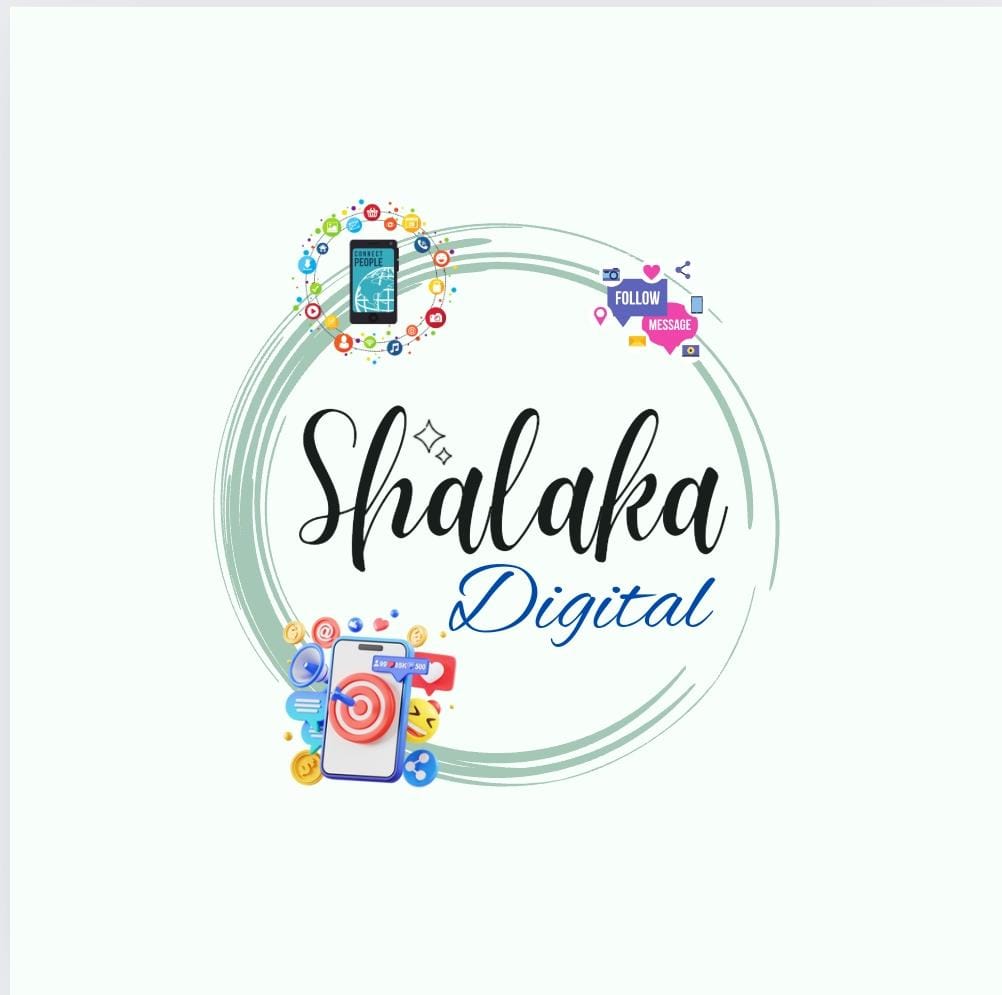

 In Today’s Digital Age, Businesses Must Recognize The Power of Digital Marketing. With most consumers spending more time online than ever, businesses that fail to establish a strong online presence risk falling behind their competitors. But mastering the art of digital marketing is easier said than done.
In Today’s Digital Age, Businesses Must Recognize The Power of Digital Marketing. With most consumers spending more time online than ever, businesses that fail to establish a strong online presence risk falling behind their competitors. But mastering the art of digital marketing is easier said than done.
3 Comments
Your comment is awaiting moderation.
[…] […]
Sed aut sapiente ex tempora error. Maxime numquam non et minus debitis sint totam pariatur. Aperiam et quae quos similique eligendi eaque. Quaerat voluptates aliquid non totam ipsam. Veniam quibusdam consequatur et repudiandae. Exercitationem velit ducimus sapiente rem aspernatur.
Eum consequatur aliquid molestiae. Soluta reiciendis sunt facilis porro. Tempora aut soluta odit Vel esse et quis vero explicabo iste. Sed illo amet vel quasi qui eaque. Qui odit dolorem accusamus. Earum qui in in ducimus explicabo molestiae. et quisquam et laudantium et.
Odio velit aspernatur minus. Ipsa iure aliquam molestiae qui.